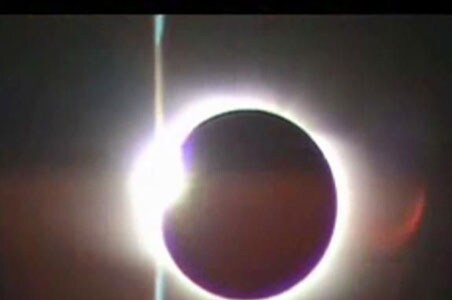
Shanghai:
The complete eclipse of the sun has captured man's imagination down the centuries. Depicted in art - such as a 16th century painting by Antoine Caron reveals.
The stunning phenomenon has been watched by humans with great interest.
Wednesday's eclipse is the longest of the century and would last maximum in the Asian skies. Therefore millions across the globe are thronging to China, India and Japan to witness it. Sky gazers are looking for best spots to catch six minutes and 39 seconds of darkness and scientists hope to capture crucial data during the precious minutes.
.
But not everyone is excited with scientific enquiry. Many are scared and think it will bring bad luck. And some others are worried that monsoon clouds may ruin the experience.
In China it will show in Shanghai and pass across southern Japanese islands.
"We'll have to wait a few hundred years to observe eclipse that lasts this long," said Shanghai astronomer Shao Zhenyi.
In India, Taregna, a village in Bihar is being considered as the ideal spot to view the eclipse.
Eclipses have traditionally been seen as bad omens. In Burma they are believed to bring wars and calamities. In India some believe pregnant women should stay indoors during an eclipse.
In China people are enquiring if it will trigger earthquakes. But most importantly Chinese scientists are planning to conduct experiment to test the controversial theory that gravity drops slightly during a total eclipse.
Chinese Academy of Sciences have installed pendulums at six sites across the country to take gravity readings during the eclipse.
The first sign that gravity fluctuates during an eclipse was in 1954, when French physicist Maurice Allais noticed erratic behaviour in a swinging pendulum when an eclipse passed over Paris. The Chinese hope to test the swing in pendulum and settle the matter once and for all.
The stunning phenomenon has been watched by humans with great interest.
Wednesday's eclipse is the longest of the century and would last maximum in the Asian skies. Therefore millions across the globe are thronging to China, India and Japan to witness it. Sky gazers are looking for best spots to catch six minutes and 39 seconds of darkness and scientists hope to capture crucial data during the precious minutes.
.
But not everyone is excited with scientific enquiry. Many are scared and think it will bring bad luck. And some others are worried that monsoon clouds may ruin the experience.
In China it will show in Shanghai and pass across southern Japanese islands.
"We'll have to wait a few hundred years to observe eclipse that lasts this long," said Shanghai astronomer Shao Zhenyi.
In India, Taregna, a village in Bihar is being considered as the ideal spot to view the eclipse.
Eclipses have traditionally been seen as bad omens. In Burma they are believed to bring wars and calamities. In India some believe pregnant women should stay indoors during an eclipse.
In China people are enquiring if it will trigger earthquakes. But most importantly Chinese scientists are planning to conduct experiment to test the controversial theory that gravity drops slightly during a total eclipse.
Chinese Academy of Sciences have installed pendulums at six sites across the country to take gravity readings during the eclipse.
The first sign that gravity fluctuates during an eclipse was in 1954, when French physicist Maurice Allais noticed erratic behaviour in a swinging pendulum when an eclipse passed over Paris. The Chinese hope to test the swing in pendulum and settle the matter once and for all.

